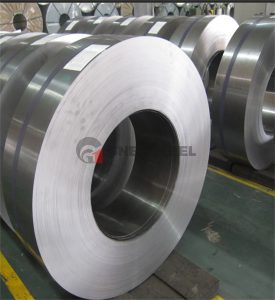Silicon Steel

Temperature Stability of silicon steel
Temperature stability is an important characteristic of silicon steel, referring to its ability to maintain its magnetic properties and performance stability over a wide temperature range. produ...
DESCRIPTION
Temperature stability is an important characteristic of silicon steel, referring to its ability to maintain its magnetic properties and performance stability over a wide temperature range.
product description
|
Thickness
|
0.2- 0.8 mm
|
|
Packing
|
Export standard package (as per requirements)
|
|
MOQ
|
1 tons per size
|
|
Delivery time
|
15-40 days after receiving L/C or deposit
|
|
Remark
|
Specific requirement of alloy grade,temper or specification can be discussed at your request
|
Silicon steel has a Curie temperature, also known as the Curie point, which is the temperature at which the material loses its ferromagnetic properties. For silicon steel, this temperature is typically around 730°C (1,346°F). Above the Curie temperature, silicon steel transitions into a paramagnetic state and no longer exhibits strong magnetic behavior.Silicon steel is designed to have a low temperature coefficient of core loss. This means that the core loss, which includes hysteresis loss and eddy current loss, remains relatively constant even with temperature fluctuations. The low temperature coefficient helps maintain the efficiency and performance of electrical devices using silicon steel, even when exposed to varying temperatures.







